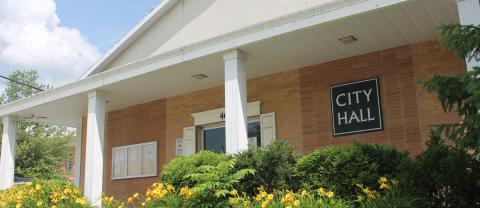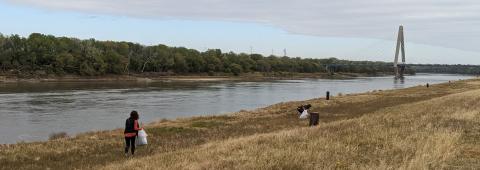- Elder Justice Innovation Grants FY2025 — Deadline July 30, 2025
Funding opportunity from the Department of Health and Human Services
The purpose of the EJIG program is to support the development and advancement of new and emerging issues related to elder justice. Funded projects will contribute to the improvement of the field of elder abuse prevention and intervention at large, such as by developing materials, programs, etc. that can be widely disseminated and/or replicated, or by establishing and/or contributing to the evidence-base of knowledge.
Estimated Total Program Funding: $3,000,000
Award Ceiling: $500,000
Award Floor: 250,000
Deadline: July 30, 2025
More information
- Preventive Health and Health Services Block Grant — Deadline July 31, 2025
Funding opportunity from the Department of Health and Human Services
The Preventive Health and Health Services (PHHS) Block Grant Program allows recipients to address their own unique public health needs and challenges with evidence based, innovative and community-driven methods. Recipients set their own goals and program objectives to address local priorities.
Estimated Total Program Funding: $162,000,000
Award Ceiling: $0
Award Floor: $0
Deadline: July 31, 2025
More information
- Announcement of Stand Down Grants — Deadline Sept. 30, 2025
Funding opportunity from the Department of Labor
This program assists homeless veterans with employment, social, and health services. With this program, municipalities would be having an event coordinated with other government agencies to supply veterans with assistance they may need.
Estimated Total Program Funding: --
Award Ceiling: $10,000
Award Floor: $0
Deadline: Sept 30, 2025
More information
- FY2025 ABPP-Battlefield Land Acquisition Grant — Deadline Dec. 31, 2025
Federal funding opportunity from the Department of the Interior
This program will allow for the interpretation and preservation of historical battlegrounds from the Revolutionary War, War of 1812, and the Civil War. This program will promote public access and education with the goal of preservation in mind.
Estimated Total Program Funding: $17,400,000
Award Ceiling: $0
Award Floor: $0
Deadline: Dec. 31, 2025
More information
- Archival Projects — Deadline Nov. 5, 2025
Funding opportunity from the National Archives and Records Administration
This program will open the opportunity to assist and support online platforms for historical record collection, expand civic education, and promote understanding of our nation’s history.
Estimated Total Program Funding: $1,400,000
Award Ceiling: $150,000
Award Floor: $1
Deadline: Nov. 5, 2025
More information
- EDA FY25 Disaster Supplemental — Deadline ongoing (see details below)
Federal funding opportunity from the Department of Commerce
This program is an NOFO investment for regions that are facing economic hardship from a natural disaster occurring in FY23 or FY24.
Estimated Total Program Funding: $1,447,000,000
Award Ceiling: $50,000,000
Award Floor: $0
Deadline: None, until all funds have been expended, a new NOFO is released, or a cancellation of NOFO occurs.
More information
- Community Facilities Loan and Grant Program — Deadline ongoing
Community Facilities Loan and Grant Program
The USDA is offering funding for rural communities to improve infrastructure and provide essential facilities like public schools, courthouses and hospitals. Funding for the improvements is offered through low-interest direct loans, grants or a combination of both. Public organizations, community-based nonprofits, and federally-recognized tribes are encouraged to apply.
Deadline ongoing
More information
- Water and Waste Disposal Program — Deadline ongoing
Water and Waste Disposal Program
The USDA Rural Development program is offering funding for rural areas with populations of 10,000 or less in the form of loans and grants. Funds can be used for sanitary sewage disposal, clean and reliable drinking water systems, sanitary solid waste disposal, and stormwater drainage to households and businesses. Most state and local government organizations, private nonprofits, and federally-recognized tribes are encouraged to apply.
Deadline ongoing
More information
- Community Facilities Loan & Grant Program — Deadline ongoing
Community Facilities Loan & Grant Program
USDA Rural Development offers funding to support rural communities to make infrastructure improvements and provide essential facilities like schools, libraries, courthouses, public safety buildings, hospitals and daycare centers. A loan guarantee program is also available.
Deadline ongoing
More information
- MARC Solid Waste Management District Mini-Grants — Deadline ongoing
MARC Solid Waste Management District Mini-Grants
The Mid-America Regional Council Solid Waste Management District (MARC SWMD) is offering small grants of up to $2,999 for waste reduction, reuse, or recycling projects. Projects must be located within Cass, Clay, Jackson, Platte and Ray counties in Missouri.
Deadline ongoing
More information






